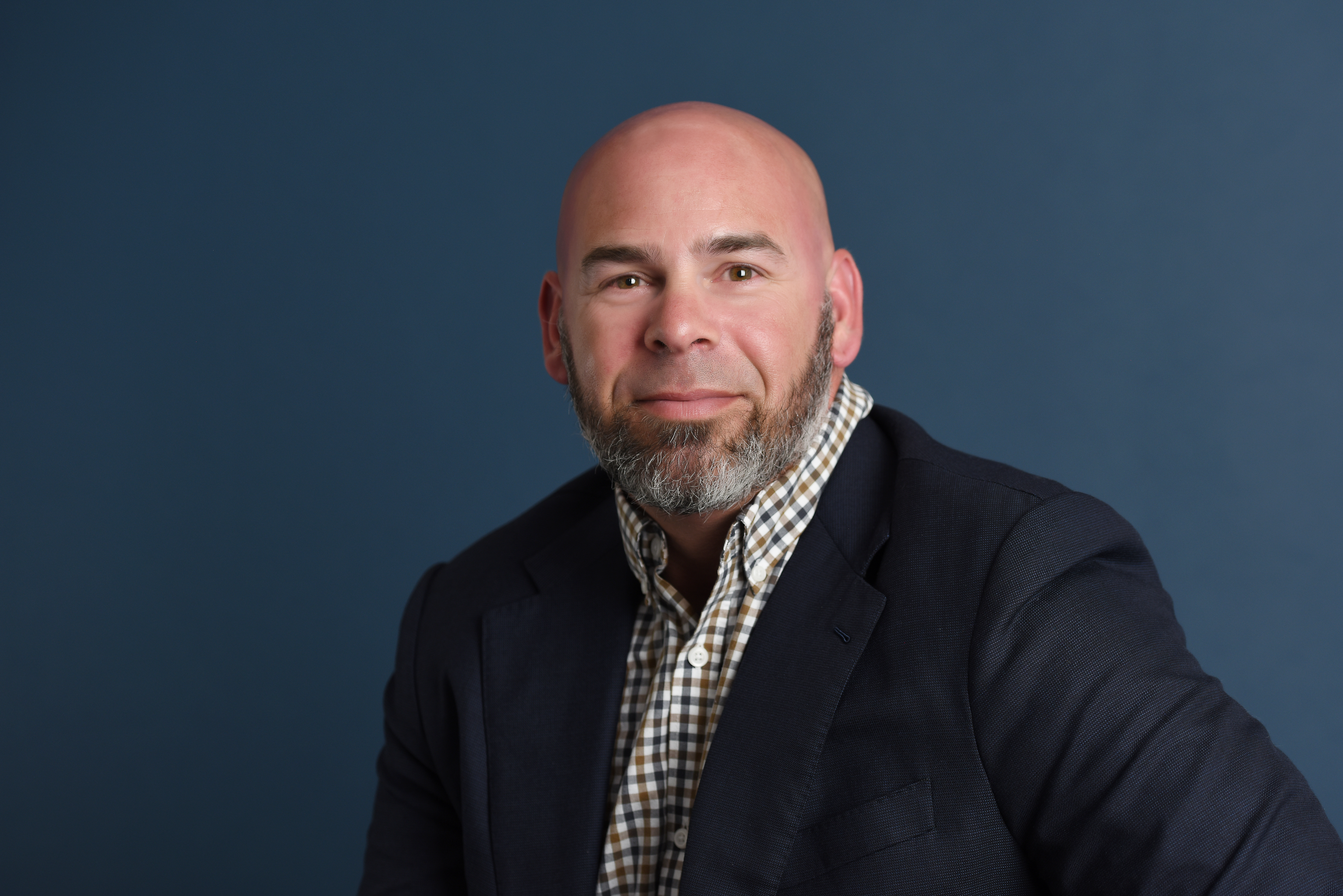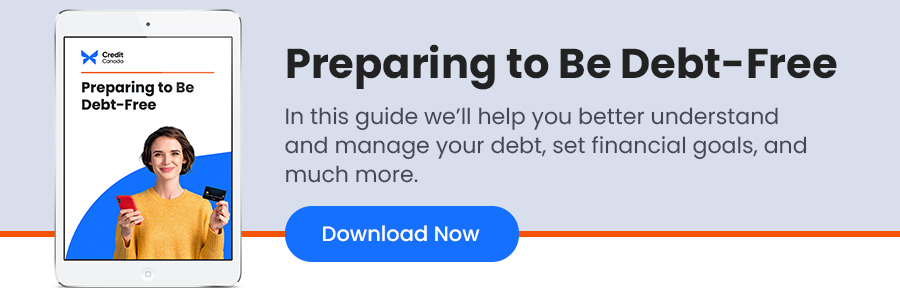
Every day, people in the Great White North Google terms like “how to get out of debt in Canada” or “what can I do to get rid of my debt fast?” In many cases, these searches result in people finding a consolidation loan provider, licensed insolvency trustee (LIT), or a credit counselling service.
As an Ontario credit counselling agency, we’d like to recommend our services to as many people as possible. However, we know that our services aren’t for everyone. There’s a time and a place for every type of debt relief service—and some programs might be better suited to your needs than others.
With that in mind, here’s some information about when and how to get out of debt in Canada with the help of a credit counselling agency.
Not Sure if You Have Too Much Debt? See how to calculate debt now!
When to Seek Debt Help
How do you know when you need to seek debt help (from a credit counsellor or any other source of help)? There are a few warning signs that should scream: “I need to get out of debt now!”
1. Transferring Balances from One Source of Debt to Another
If you’re playing credit card hot potato—constantly moving balances from one credit card or other debt source to another to put off having to pay the money owed—then odds are you need help!
The problem is that, eventually, you won’t be able to pass the potato any longer. At this point, you’ll be left holding a large debt that will be difficult to deal with.
2. Being Unable to Pay Monthly Minimums
For many people, the biggest warning sign that they need to seek debt help is when their monthly minimum payments get to be so big that they can’t pay them in full and still buy food, pay rent, and cover utilities.
If you find yourself having to choose between eating each week and paying your debts, then it’s probably time to look for a way to get out of debt in Canada.
3. Repeatedly Seeking Credit Increases
Are you constantly asking your creditors to increase your credit limit with them? If so, then you might need to start looking for help with managing your debt. Applying for more credit when you’re already struggling to manage your current balances can put you even further behind—making it harder to get out of debt.
Additionally, when you apply for more credit too often, it can damage your credit score since the credit bureaus will assume that you’re struggling financially. While simply checking your credit doesn’t have much of an impact on your score, credit bureaus like Equifax consider applying for credit a “hard inquiry.”
4. Getting Calls from Debt Collectors
If you’ve been struggling to keep up with your monthly minimum payments and end up falling behind, your creditors may send your information to a collection agency. Calls from debt collectors are often the final warning sign that drives people to start Googling “how to get out of debt in Canada” and looking for solutions in earnest.
Looking for Help with Your Debt? Get debt help.
Where to Get Credit Counselling in Canada
Looking for Canadian debt help of some kind is important—but where should you go for help? There are advantages and disadvantages to different kinds of debt relief solutions. Some common types of assistance you might seek include:
- Debt Consolidation Loans. Here, a lender provides a loan to pay off your outstanding debt. If you have good credit, you may even be able to negotiate a lower interest rate or monthly payment compared to your “pre-consolidation” debt.
- Consumer Proposals. An insolvency option that is a bit less drastic than filing for bankruptcy. Consumer proposals are administered by LITs (for example, Spergel) and allow you to pay off a portion of your debt or extend the deadline for paying back your debt (or both).
- Bankruptcy. The debt relief option of last resort for many. Filing for bankruptcy may release you from most types of debt—but at a cost. This practice has a severe negative effect on your credit, can result in the loss of your assets, and may even affect your ability to qualify for certain jobs in the future.
- Debt Consolidation Programs (DCPs). Administered by a certified credit counsellor, a DCP helps you reduce or stop the interest on your debts while rolling them all into a single, easy-to-manage monthly payment.
- Debt Management Consulting. If you want to get out of debt fast in Canada and aren’t too far behind, you might be able to do it with just a little help and advice from a credit counselling agency, financial coach, or other consultant. This is the best option if you want to manage your debt and only need to make some minor changes to your spending habits to do so.
What Situation Would Make a Credit Counsellor My Best Option to Get Out of Debt in Canada?
You may be wondering how you can choose between the different debt relief options listed above. If you don’t know much about personal debt consolidation, consumer proposals, bankruptcy, or other methods of dealing with debt, it can be hard to make the choice.
A credit counsellor may be your best option to get out of debt in Canada if:
- Your Minimum Payments Are Starting to Outstrip Your Ability to Pay Them. If you’re just starting to fall behind, but aren’t so far behind that you’d never be able to pay back your debt, then a DCP with a credit counselling service might be your best bet.
- Your Credit Score Is Damaged. If your credit score is too low to qualify for a debt consolidation loan, then pursuing a DCP with a credit counsellor can help.
- You Want to Keep Your Personal Assets. Filing for bankruptcy may mean having to give up a lot of your personal possessions, since the LIT handling your case will need to sell them off to help pay back your creditors.
- You Can Forego Using Unsecured Credit Cards for a Bit. When you join a DCP, you will need to surrender your unsecured credit cards. However, you can still continue to use secured cards if you need credit-based payment methods for something.
If you have good credit, then it may be worth applying for a consolidation loan instead of a DCP with a credit counsellor. Or, if you’re not deep in debt, then you may just want to try to tackle it on your own or seek some basic advice from a financial advisor or debt counsellor. Finally, if you find that your balances owed are completely insurmountable, it may be time to look for an LIT and ask about your insolvency options.
Tips for Choosing a Reliable Credit Counsellor
Have you decided to go with a credit counselling service (either for a DCP or just general debt management advice)? If so, then it’s important to find the right one!
Some basic things to do before choosing a credit counselling service to help you get out of debt in Canada include:
- Checking if they’re a non-profit agency;
- Looking for accreditation from a national association (like Credit Counselling Canada);
- Reading customer reviews on reputable review sites;
- Asking how often their Credit Counsellors check in with you; and
- Investigating if they provide community referrals.
How to Get Out of Debt Fast in Canada
Do you need counselling for dealing with your debt right now? Then reach out to the team at Credit Canada! Our certified Credit Counsellors provide knowledgeable, compassionate, and judgement-free debt consultation services. In fact, we’ve helped people resolve millions of dollars of debt using our debt consolidation program.
Why wait to get rid of your debt? Contact us at 1.800.267.2272 and schedule a meeting with a Credit Counsellor now!

Frequently Asked Questions
Have a question? We are here to help.
What is a Debt Consolidation Program?
A Debt Consolidation Program (DCP) is an arrangement made between your creditors and a non-profit credit counselling agency. Working with a reputable, non-profit credit counselling agency means a certified Credit Counsellor will negotiate with your creditors on your behalf to drop the interest on your unsecured debts, while also rounding up all your unsecured debts into a single, lower monthly payment. In Canada’s provinces, such as Ontario, these debt payment programs lead to faster debt relief!
Can I enter a Debt Consolidation Program with bad credit?
Yes, you can sign up for a DCP even if you have bad credit. Your credit score will not impact your ability to get debt help through a DCP. Bad credit can, however, impact your ability to get a debt consolidation loan.
Do I have to give up my credit cards in a Debt Consolidation Program?
Will Debt Consolidation hurt my credit score?
Most people entering a DCP already have a low credit score. While a DCP could lower your credit score at first, in the long run, if you keep up with the program and make your monthly payments on time as agreed, your credit score will eventually improve.
Can you get out of a Debt Consolidation Program?
Anyone who signs up for a DCP must sign an agreement; however, it's completely voluntary and any time a client wants to leave the Program they can. Once a client has left the Program, they will have to deal with their creditors and collectors directly, and if their Counsellor negotiated interest relief and lower monthly payments, in most cases, these would no longer be an option for the client.







